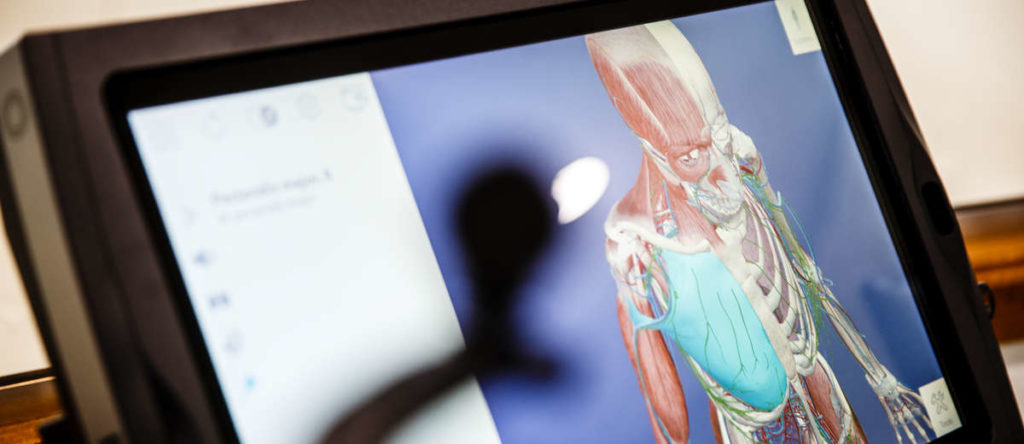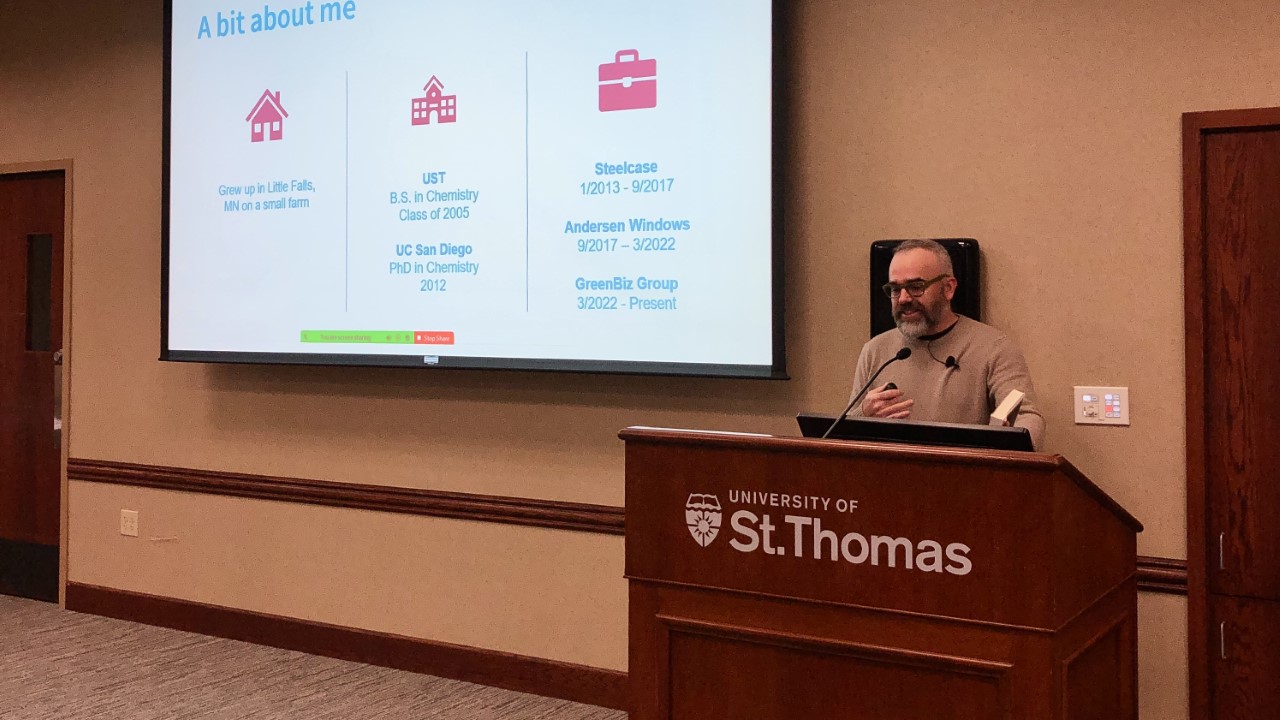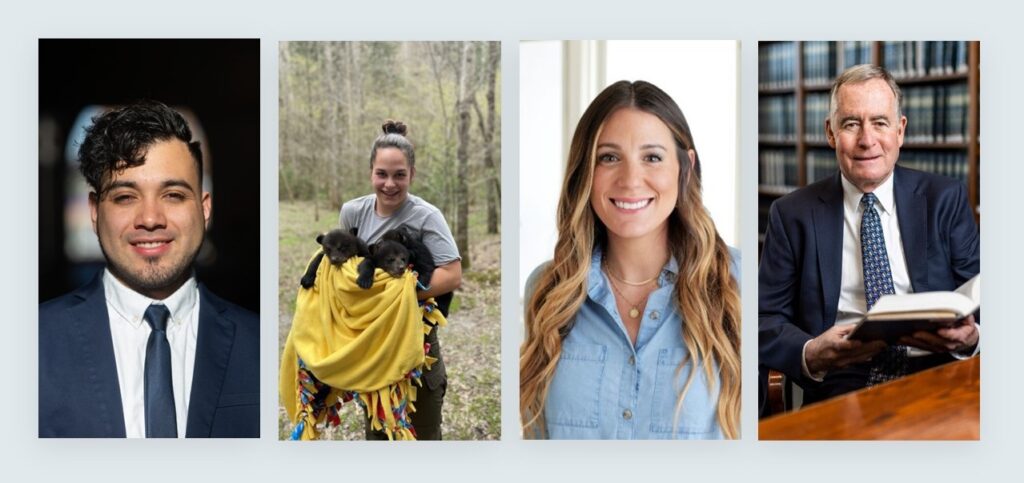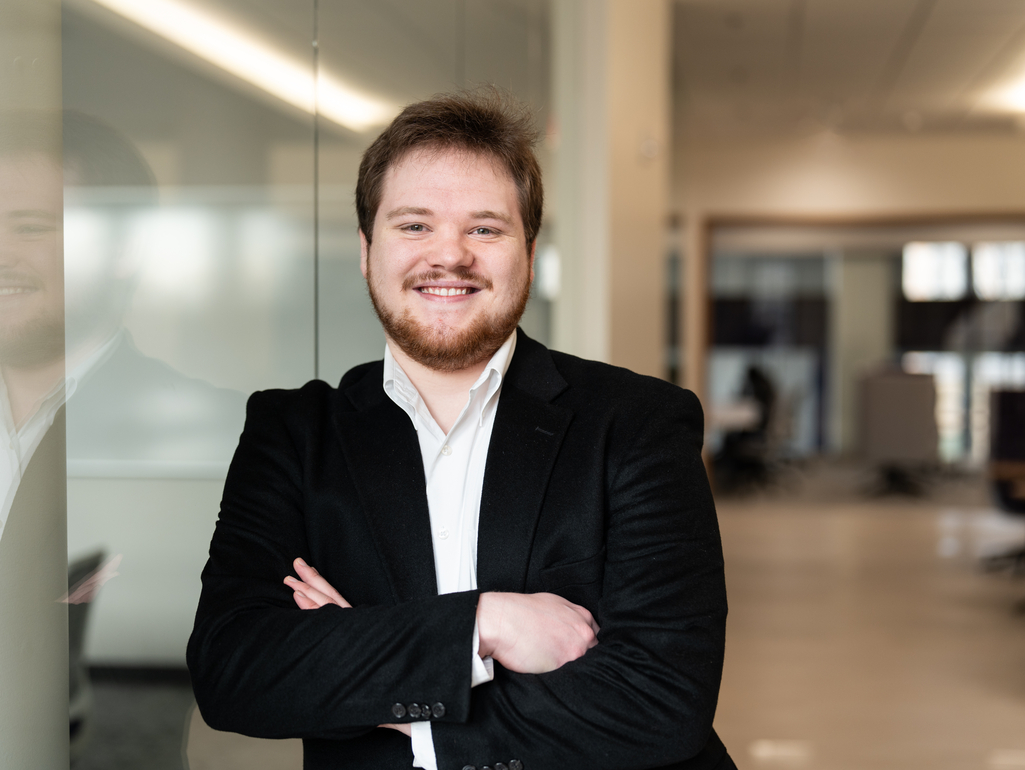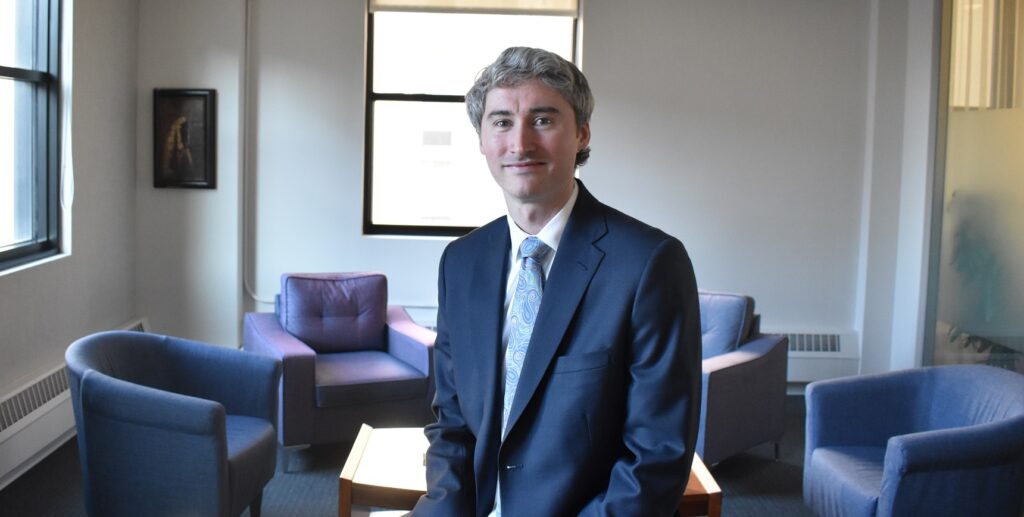We live in a linear economy. Ideally, to save the planet, we would live in a circular economy.
Two leaders who support circular economy in their work shared what we can do to make the world more sustainable at the BDW Speaker Series: Tech for Good on Nov 1, 2022, at Opus College of Business in McNeely Hall.
“We take things out of the ground … we make products out of them,” said Dr. Jon Smieja ’05, VP of circularity and senior analyst at GreenBiz Group. “Someone uses those products between 10 seconds and 100 years. Then they are disposed of largely through landfill, incineration, some form of downcycling, or escape into the atmosphere or environment.”
Smieja provided an overview of circular economy and why we, as a society, need to turn our focus to it more. The circular economy is the official theory of the old cradle-to-cradle metaphor – what we take from the Earth should be given back to it. But how can we do this in today’s world which is so steeped in the linear model of taking things to the trash?
Smeija took the crowd through his professional journey and how he went from graduating in chemistry from the University of St. Thomas to becoming the VP of circularity and senior analyst at GreenBiz Group. He explained what he has learned from his experience in the field, that society currently is on the journey of transferring to a circular economy and explained the importance of that. Then he broke down three things that are overhyped, three things that cause confusion, and three areas to watch.
“Jon did a fantastic job of simplifying a complex subject that affects everyone, acknowledging the serious impact of the linear economy and directing participants to the goals of a circular economy,” said Business in a Digital World Executive Director Kristina Schatz. “He shared that the world is about 8.6% circular and that in order to continue to live on the planet, that number must go up. He explained beautifully how we can move closer to a circular model through eliminating waste and pollution, circulating products and materials, and regenerating nature.”
Dr. Phil Brown, VP of business development and strategy at Circularise, who holds a doctorate in collaborative circular oriented innovation, joined the event via Zoom from his office in the Netherlands. Brown dove deeper into the subject using Circularise as a personal case study for how to use technology, specifically blockchain technology, to positively impact circular economy.
The mission of Brown’s Curcularise team is to bring traceability to global supply chains, and they do this on a public blockchain. What is important here is that many companies are making sustainability statements, but can consumers rely on those statements alone?
Brown’s concern is that sustainable packaging statements are overhyped.
“If we consistently overhype them and don’t actually provide evidence we could lose the goodwill, the ability, and the desire to purchase sustainable product if we can’t back those [claims] up,” he said.
“Brown brought the audience into his complex innovative world in such a welcoming and inclusive way,” said Business in a Digital World Innovation Coordinator Calli McCartan. “He broke down industry titles and acronyms and simultaneously gave expert details about how Circularise is using their products to increase traceability in supply chains and how they are navigating the ever-changing world of governance around both sustainability and emerging technology in the EU.”
After both Smeija and Brown spoke, they took the opportunity to answer questions from the audience. Over the Zoom chat many people were requesting to reach out to the speakers on LinkedIn to keep the conversation going and thanking them for the impactful and engaging event. It was clear that those who were in the room (or virtual room) for this event were dedicated to this subject and learning more.
“Sustainability is core to the mission here at St Thomas,” said Rachel Schauer, program manager for the Office of Sustainability Initiatives.
Schatz and Schauer took a moment to emphasize the importance of sustainability at the University of St. Thomas and encourage mindfulness and active support of the circular economy in their lives and work going forward.
As the in-person student attendees grabbed flyers for the new minor in sustainability on their way out the door, it was clear that everyone who attended was intrigued. The circular economy and the use of blockchain technology to promote it may be an emerging subject, but the impact that those who attended this event felt is sure to inspire the next generation of digitally fluent St. Thomas changemakers to go into the workplace equipped to make the world more sustainable for the common good.
This event was hosted by the Business in a Digital World Initiative in the Opus College of Business in partnership with the Office of Sustainability and the Melrose and The Toro Company Center for Principled Leadership. See the members of these St. Thomas offices and initiatives below.
The event was co-sponsored by the Engineers for a Sustainable World and Business Law and Compliance clubs.
Business in a Digital World:
- Kristina Schatz, executive director
- Lisa Abendroth, academic director
- Calli McCartan, innovation coordinator
Office of Sustainability:
- Dr. Maria Dahmus, director, Sustainable Communities Partnership
- Rachel Schauer, program manager
Melrose and The Toro Company Center for Principled Leadership:
- Nicole Zwieg Daly, executive director
- Christopher Michaelson, academic director
More on Business in a Digital World
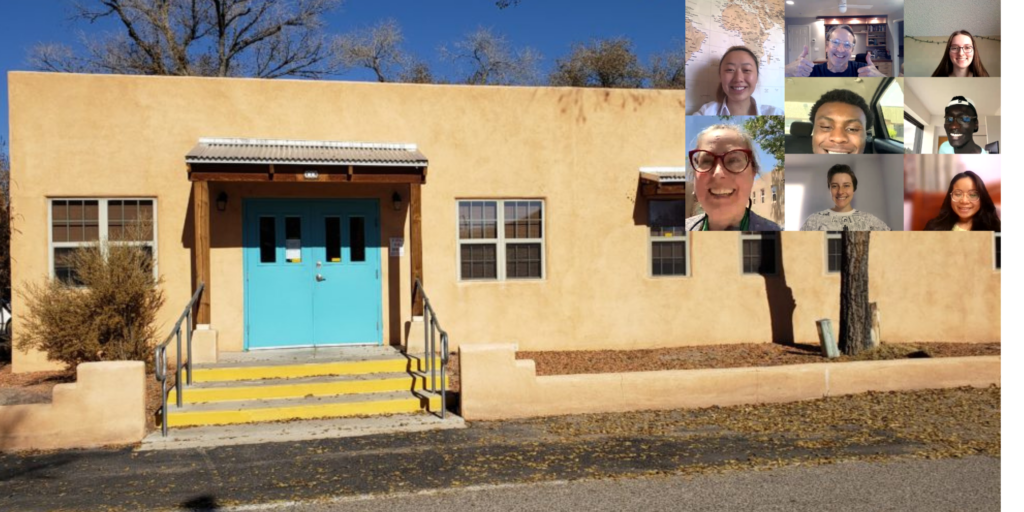
Students Gain Real-world Skills Through Opus Tech Program
Business & Law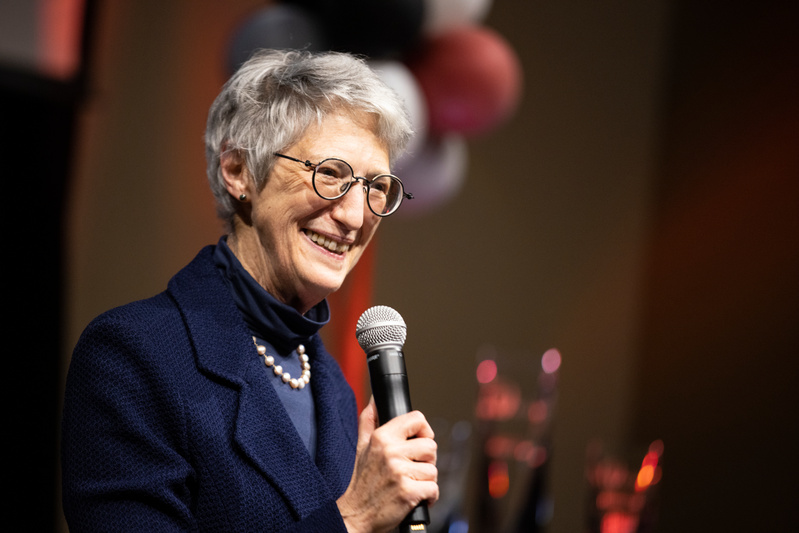
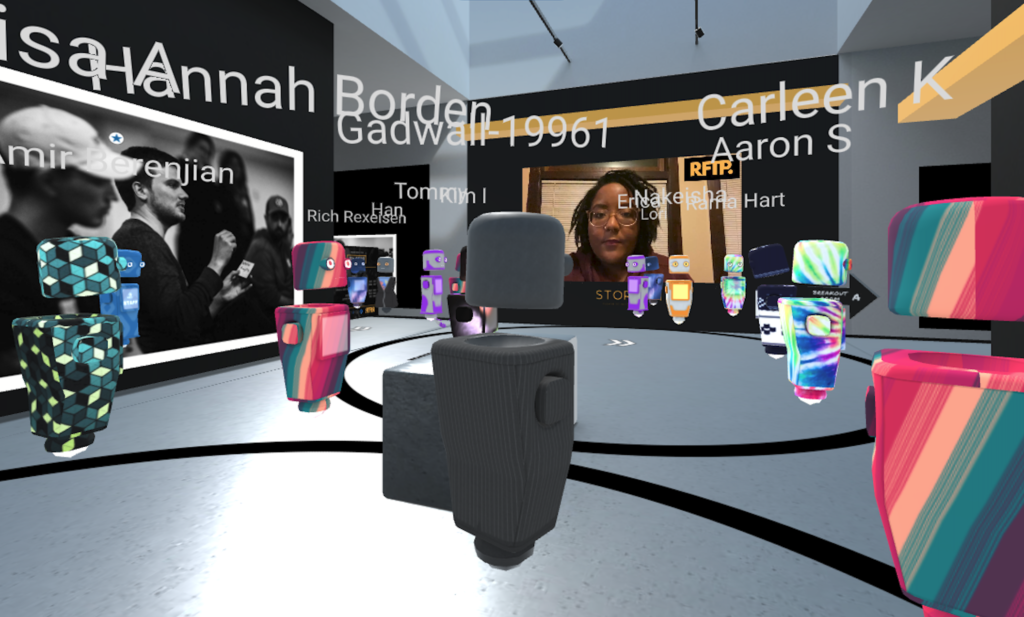
Virtual Reality Exposes Students to Systemic Inequalities
Business & Law